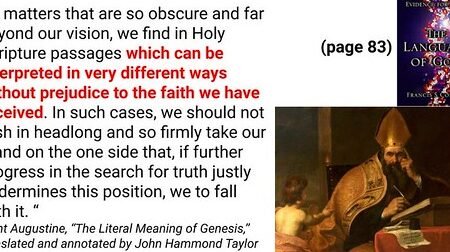
Bible Controversy: Examining the Arguments For and Against

The Bible is a religious text that has been the subject of much debate and controversy throughout history. From questions about its authorship and historical accuracy to debates about its moral teachings and relevance in modern society, the Bible has generated a wide range of opinions and viewpoints. In this article, we will explore some of the key arguments for and against the Bible, shedding light on the different perspectives surrounding this influential book.
In this article, we will delve into the various arguments both in favor and against the Bible. We will examine the historical evidence supporting its authorship and authenticity, as well as the criticisms and skepticism surrounding its origins. Additionally, we will explore the moral teachings of the Bible and the ongoing debates about their relevance and applicability in today's society. By presenting multiple perspectives, our aim is to provide a comprehensive overview of the Bible controversy and encourage readers to think critically about the various viewpoints surrounding this ancient text.
Index
Understanding the Bible Controversy: A Comprehensive Overview
The Bible is one of the most debated and controversial books in history. People have strong opinions either in favor or in rejection of the Bible, and the arguments on both sides are diverse and complex. In this comprehensive overview, we will examine the main arguments for and against the Bible, shedding light on the different perspectives surrounding this religious text.
Arguments in Favor of the Bible
Those who support the Bible often cite its historical and cultural significance. They argue that the Bible has shaped Western civilization, influencing art, literature, and morality. Additionally, believers see the Bible as a source of spiritual guidance and a connection to a higher power. They find comfort, inspiration, and wisdom in its teachings.
Furthermore, proponents of the Bible argue that it offers a moral framework for society. They believe that its teachings promote love, compassion, and justice, providing a guide for ethical living. The Bible is seen as a source of hope, healing, and transformation for individuals and communities.
Another argument in favor of the Bible is its literary value. Many scholars appreciate the beauty and complexity of its language, poetry, and narratives. They study the Bible as a work of literature, analyzing its themes, symbols, and historical context.
Arguments Against the Bible
On the other hand, critics of the Bible raise various objections to its validity and relevance. Some argue that the Bible is a collection of ancient myths and legends, lacking historical accuracy. They suggest that the stories and events described in the Bible are based on folklore and exaggeration.
Others criticize the Bible for its seemingly contradictory messages and ethical inconsistencies. They point out passages that condone violence, discrimination, and intolerance. Critics argue that these problematic verses undermine the moral authority of the Bible and raise questions about its divine origin.
Furthermore, skeptics question the reliability of the Bible as a historical document. They argue that it was written by fallible human beings and has undergone multiple translations and interpretations throughout history. As a result, they believe that the original meaning and intent of the text may have been distorted or lost over time.
Conclusion
The Bible controversy is a complex and nuanced topic, with passionate arguments on both sides. Understanding the perspectives of those in favor or in rejection of the Bible is essential to engage in meaningful discussions and explore the rich tapestry of ideas surrounding this influential religious text.
Whether you approach the Bible with reverence and faith, or with skepticism and critical analysis, it is important to recognize the role it has played in shaping human history and the diverse beliefs and interpretations it continues to inspire.

One of the main arguments in favor of the Bible's authenticity and authority is its historical accuracy. Many scholars and archaeologists have studied the Bible and have found evidence to support the events and people mentioned in its pages. For example, the discovery of the Dead Sea Scrolls in 1947 provided valuable insights into the ancient texts and confirmed the accuracy of the biblical manuscripts.
Another argument in favor of the Bible is its impact on society and culture. The Bible has had a profound influence on literature, art, music, and even political systems throughout history. Its teachings and principles have shaped moral values and ethical standards in many societies. The Bible's enduring popularity and widespread distribution also attest to its significance and relevance in people's lives.
In addition, proponents of the Bible argue that it offers a comprehensive worldview and answers life's fundamental questions. It provides guidance and wisdom for various aspects of life, including relationships, morality, purpose, and meaning. The Bible's teachings on topics such as love, forgiveness, and compassion have resonated with millions of people and have been a source of comfort and inspiration.
Furthermore, believers in the Bible argue that it contains prophecies that have been fulfilled, demonstrating its divine origin. They point to the fulfillment of prophecies about the birth, life, death, and resurrection of Jesus Christ as evidence of the Bible's reliability. These fulfilled prophecies provide believers with confidence in the Bible's truthfulness and reinforce their faith.
Despite these arguments in favor of the Bible, there are also those who reject its authenticity and authority. They raise various objections and criticisms, some of which include:
- Doubts about the Bible's authorship and the reliability of its manuscripts
- Conflicts between the Bible's teachings and scientific discoveries
- Inconsistencies and contradictions within the biblical texts
- Concerns about the Bible's moral teachings and their relevance in modern society
These objections challenge the credibility and validity of the Bible, leading some to question its status as a divine revelation. Critics argue that the Bible is a product of human authorship and reflects the cultural and historical context in which it was written.
Despite these objections, believers in the Bible maintain their faith and find value in its teachings. They argue that the Bible's spiritual and moral guidance is timeless and transcends cultural and historical contexts. They view the Bible as a source of ultimate truth and a guide for living a meaningful and purposeful life.
In conclusion, the arguments for and against the Bible's authenticity and authority are complex and multifaceted. While some find compelling evidence and reasons to support the Bible, others raise valid concerns and objections. Ultimately, each individual must examine the evidence, consider the arguments, and make their own determination about the Bible's significance and relevance in their lives.
Debunking the Arguments Against the Bible's Accuracy and Reliability
While there are individuals who reject the Bible's accuracy and reliability, it is important to examine their arguments and debunk any misconceptions. One common argument against the Bible is the claim that it is a book of myths and legends, lacking historical evidence. However, extensive archaeological discoveries have consistently provided evidence supporting the Bible's historical accuracy.
Another argument often made is that the Bible is filled with contradictions and inconsistencies. However, many of these alleged contradictions can be resolved through careful study and understanding of the cultural and historical context in which the Bible was written. It is also important to consider that the Bible is a collection of diverse books written by various authors over a span of centuries, each with their own unique perspectives and styles of writing.
Additionally, critics often argue that the Bible promotes violence, sexism, and other unethical behaviors. However, it is essential to differentiate between descriptive passages that reflect the historical context of the time and prescriptive teachings that provide moral guidance. The Bible contains passages that describe the actions of individuals in a historical context, but it does not necessarily condone or endorse those actions.
Furthermore, it is crucial to consider the literary and theological context of the Bible when evaluating its teachings. The Bible is a complex and multifaceted text that requires careful interpretation. Taking verses out of context or cherry-picking passages can lead to misunderstandings and misrepresentations of its true message.
It is also worth noting that the Bible has withstood the test of time and continues to be one of the most widely read and influential books in history. Its impact on literature, art, philosophy, and culture is undeniable. This longevity and enduring influence speak to the profound significance and enduring relevance of the Bible.
In conclusion, while there are arguments against the accuracy and reliability of the Bible, a closer examination reveals that many of these arguments can be debunked through careful study, historical evidence, and contextual understanding. The Bible remains a book of immense cultural, historical, and spiritual value, deserving of thoughtful consideration and exploration.
The Impact of the Bible Controversy on Faith and Society
The Bible controversy has long been a topic of debate and discussion in society, with people falling into two distinct camps - those in favor of the Bible and its teachings, and those who reject it. This controversy has had a profound impact on both faith and society, shaping beliefs, values, and even laws.
For those in favor of the Bible, it is seen as a sacred text that provides guidance, moral principles, and a foundation for faith. They believe that the Bible is the word of God and should be followed in all aspects of life. These individuals often find comfort, inspiration, and a sense of purpose within its pages.
On the other hand, there are those who reject the Bible and its teachings. They may view it as an outdated and irrelevant text, or they may have philosophical or ideological differences with its content. Some argue that the Bible promotes intolerance, discrimination, and outdated societal norms.
One of the main arguments in favor of the Bible is its role in shaping moral values and guiding individuals towards a virtuous life. Proponents argue that the Bible provides a moral compass, offering clear principles for right and wrong. They believe that society would benefit from embracing these values and that the Bible can provide a solid foundation for ethical decision-making.
However, those who reject the Bible often criticize its teachings as being discriminatory or oppressive. They argue that certain passages promote prejudice against marginalized groups, such as women, LGBTQ+ individuals, and people of different religious or cultural backgrounds. They believe that relying on the Bible for moral guidance can perpetuate inequality and hinder social progress.
The Bible controversy also extends to the realm of science and education. Some proponents of the Bible argue for the inclusion of creationism or intelligent design in school curricula, alongside or instead of evolutionary theory. They believe that the Bible offers an alternative explanation for the origins of life and that teaching these ideas is essential for a well-rounded education.
However, critics argue that including religious teachings in science classrooms undermines the principles of scientific inquiry and promotes the teaching of religious beliefs as fact. They advocate for a separation of church and state and believe that religious beliefs should be taught in religious institutions rather than public schools.
Ultimately, the Bible controversy is a complex and multi-faceted issue that touches on matters of faith, morality, social justice, and education. It continues to spark passionate and often divisive debates, shaping the beliefs and values of individuals and societies around the world.
Frequently Asked Questions
1. Are there multiple versions of the Bible?
Yes, there are multiple versions of the Bible, each translated into different languages and with variations in wording and interpretation.
2. Why are there different interpretations of the Bible?
Different interpretations of the Bible arise due to factors such as cultural differences, theological perspectives, and varying hermeneutical approaches.
3. Can the Bible be historically accurate?
Many historical events mentioned in the Bible have been corroborated by archaeological findings, but there are also debates and controversies regarding certain details.
4. What is the controversy surrounding biblical inerrancy?
The controversy surrounding biblical inerrancy centers around differing views on whether the Bible is without error in all matters, including history, science, and morality.
 The Pros and Cons of Homeopathy: Debunking the Controversy
The Pros and Cons of Homeopathy: Debunking the Controversy Pros and Cons of Sports: Examining the Benefits and Drawbacks
Pros and Cons of Sports: Examining the Benefits and DrawbacksSi leer artículos parecidos a Bible Controversy: Examining the Arguments For and Against puedes ver la categoría Society and Lifestyle.






Leave a Reply